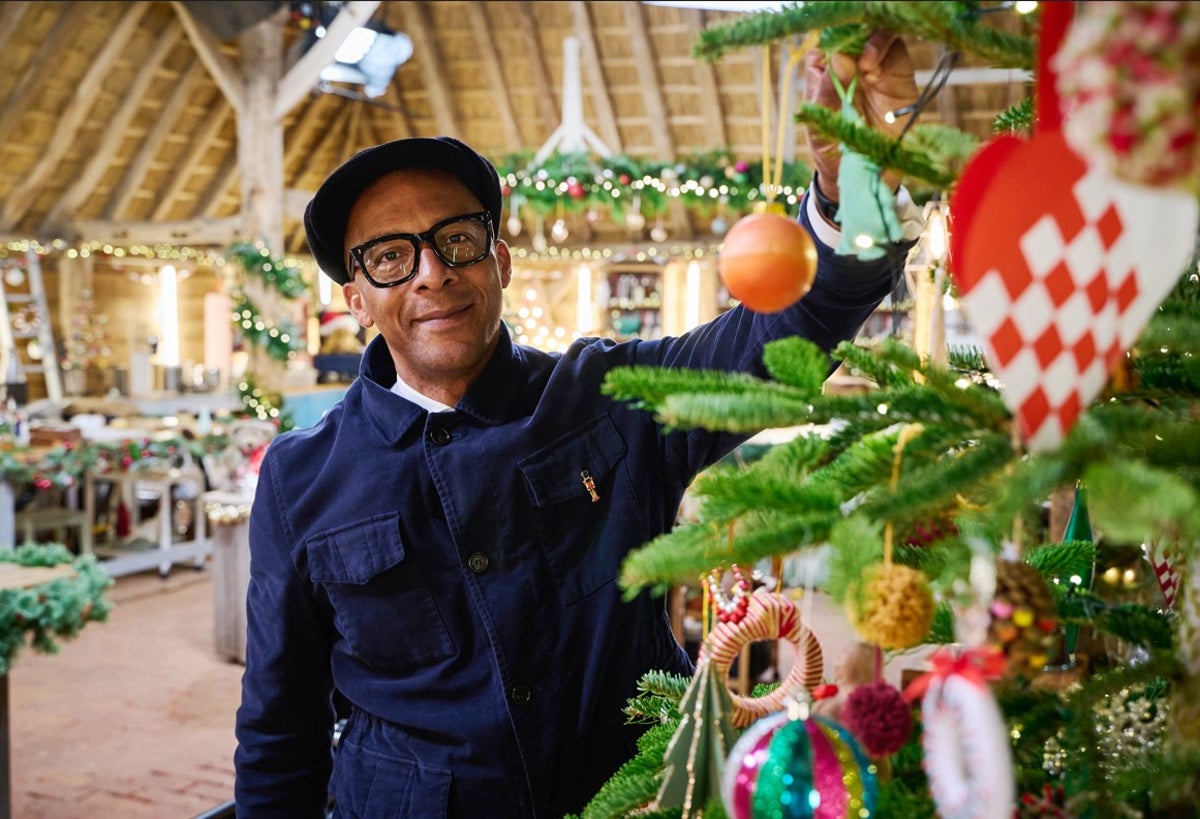
There aren’t any Bafta awards for “the nicest show on television”, but there jolly well ought to be, so that The Repair Shop receives its proper recognition each and every year. You can keep your moving dramas, searing social documentaries and World Cup finals, because there’s only one TV show guaranteed to get the audience weeping at full capacity, and especially at this emotionally charged time of year. They should probably rename it “There Will Be Tears”.
Ostensibly, the show is about dedicated craftspeople doing up bits of, frankly, tat and junk to no great commercial purpose. In contrast to the rather mercenary undercurrents on the Antiques Roadshow or all those daytime programmes featuring David Dickinson and a wad of tenners, there’s no snidey valuations “for insurance proposes, of course” and no possibility that deeply loved family heirlooms are quietly being prepared for auction to help pay for a new kitchen. Quite the opposite, in fact. This is all about sentimental value, and also about more than the restoration and renovation of material things. The Repair Shop really specialises in mending broken hearts, and melting the ones of those watching at home. Awwww.
Hence the arrival of some of the most pitiful objects you’d ever hope to see outside a charity shop. A bedraggled little artificial Christmas tree, but one that has delighted generations of children and welcomed soldiers back from wars since its acquisition in 1920. One of those kitsch lounge room home bars people used to have in the 1960s, about to be lobbed in the skip. A beat-up 1940s trombone. A cuddly Santa purchased for kids in Christmas 1962. And, most magical of all, a non-functioning film projector with home movies not seen in decades. In each case, the items have a deep, personal meaning for those who bring them in, and it’s an honour both for the artisans to restore them back to their full glory, and for the rest of us to watch them do so and, as I say, to see them fix small but painful gaps in people’s lives.
Every item has extreme poignancy embedded deep in its fabric. The home bar was bought by a Windrush-generation Jamaican woman to entertain friends and family at home – rum punch and blues parties. Who doesn’t like a party? But her granddaughter who takes it in casually remarks how, back in those days, the “colour bar” in the pubs and clubs meant that people like gran had even more cause to centre their social lives at home. The chap with the trombone, meanwhile, never saw his father play it in his Salvation Army band after dad fell ill with Parkinson’s, and it’s now the only tactile link he has with that past. Everyone wells up when he gets a tune out of it. And the home movies are a touching reminder of a much-loved sister, mum and grandma taken by breast cancer.
Once again, we marvel at the ingenuity of the kindly artisans. Kirsten Ramsay remakes the “needles” of the artificial Christmas tree out of a feather split down its middle, painted deep green and twisted around a piece of wire, just as would have been done in the pre-plastic age. Lovely Peter Woods regards soldering and bashing the trombone back into shape as a Christmas gift to himself. It’s also a warm pleasure to watch “teddy bear ladies” Amanda Middleditch and Julie Tatchell put the stuffing back into the aged, knackered Santa toy. While Kirk and Dominic Chinea make an especially impressive job of the water-damaged and neglected home bar: I never realised epoxy resin could bring so much joy to so many.
The images we see are homely and the atmosphere bittersweet and celebratory, and a big part of that is the ever-charming, understated host Jay Blades. Somehow he holds it together for the hour, and the great Bill Patterson’s polished walnut burr of a commentary adds a final touch of class to the production, itself an act of televisual craft.
It’s all a bit much to take, to be honest, and while The Repair Shop is obviously about putting things back together it also tears at the old heart strings of the viewer. It reminds us to treasure the things as well as the people that mean so much to us, because they’re so often intertwined – and to try to look after mementos for future generations. Not unlike the BBC itself, in fact, a century-old global treasure of craft and creativity currently being carelessly trashed by this government. When it’s gone, there’ll be no Repair Shop to try to stick it back together again. So let’s try to take care of it in the meantime.







